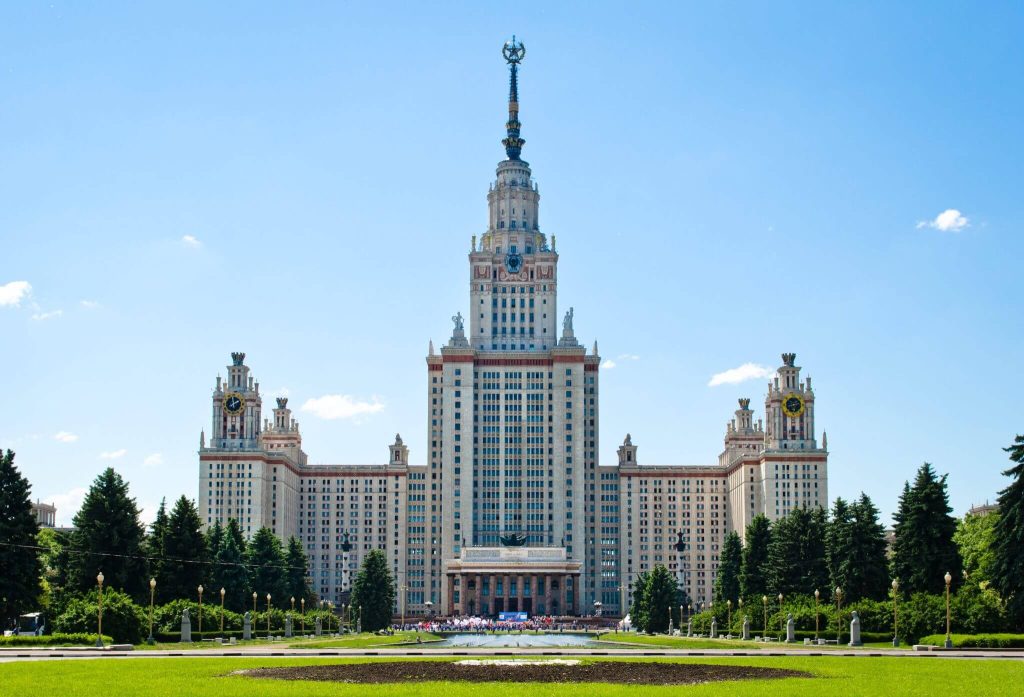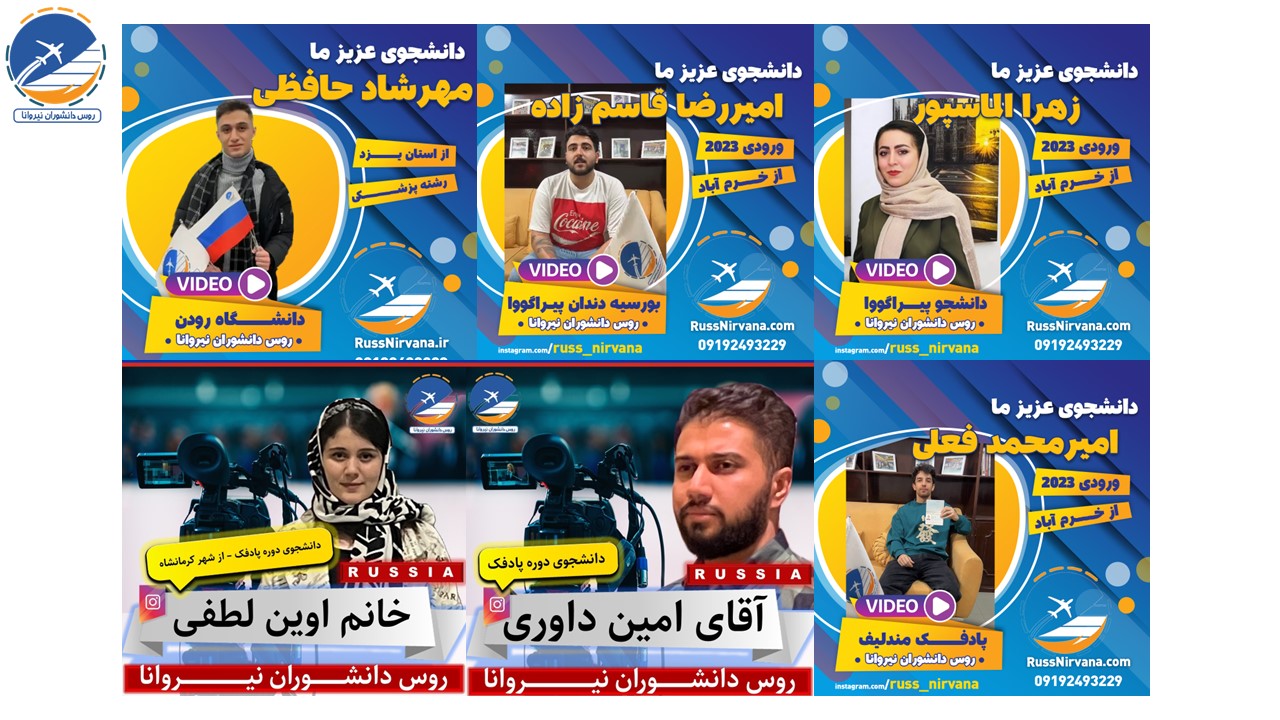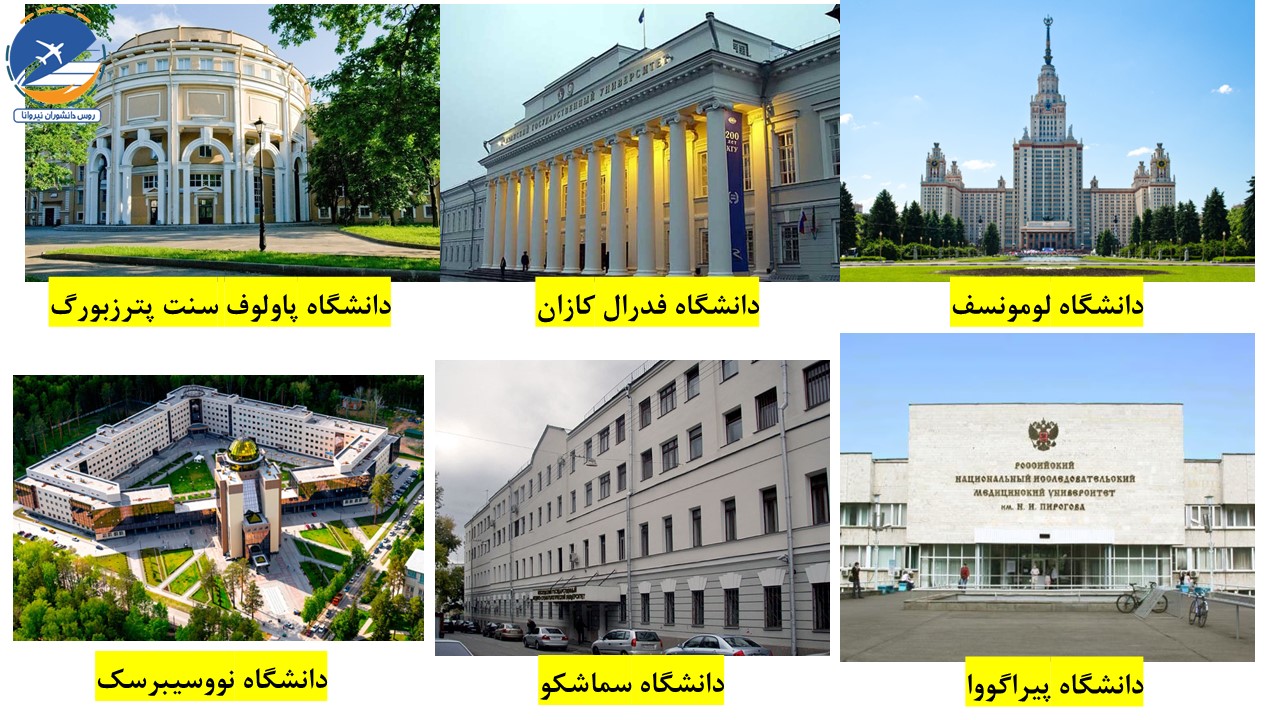In recent years, Russia has become one of the most popular study‑abroad destinations for Iranian students—especially those pursuing Medicine, Dentistry, Pharmacy, Engineering, and Basic Sciences. With its high educational standards, affordable living costs, and globally recognized degrees, Russia is now a serious and practical alternative for students seeking quality education overseas.
However, the journey from Iran to a Russian university requires awareness, careful planning, and following a defined procedure.
1. Why Study in Russia?
Russia hosts more than 700 universities and higher education institutions, offering programs both in Russian and English. Prestigious names such as Lomonosov Moscow State University (MSU), Saint Petersburg State University (SPbU), and Kazan Federal University (KFU) consistently rank among the world’s top academic centers.

Key Advantages of Studying in Russia
Affordable Tuition Fees
Compared with Western Europe, the United States, or Canada, tuition fees in Russia are much lower while maintaining high teaching quality. In 2025, tuition for medical programs typically ranges from 4,000 to 12,000 USD per year.
Easier Admission Process
Unlike many European countries, Russian universities place less emphasis on Iranian national entrance exam scores. Admission is primarily based on high school grades and success in a university‑specific entrance test (often covering basic science subjects).
Program Variety and Capacity
Russia offers outstanding programs across numerous fields—from nuclear science and aerospace engineering to medicine and computer science. Many universities also provide English‑taught tracks, which may eliminate the need for the preparatory Padefka course.
Safe and Culturally Diverse Environment
Most student cities in Russia are safe and host vibrant international communities, especially from Asia and the Middle East, making adaptation smoother for Iranian students.
Learning the Russian Language
Russian is one of the six official languages of the United Nations. Mastering it can open global career opportunities or enhance employability upon returning to Iran in Russian‑affiliated companies.
International Recognition of Degrees
Degrees from accredited Russian universities (especially those approved by Iran’s Ministry of Science and Ministry of Health) are widely recognized and allow for further academic progression in Europe or North America.
2. Admission Requirements for Iranian Applicants
Before starting the admission process, Iranian students should ensure that they meet the general entry requirements.
a) Academic Documents
- Bachelor’s Programs: High school diploma and transcripts, officially translated into English or Russian and authenticated by Iran’s Ministry of Foreign Affairs and the Judiciary.
- Master’s Programs: Bachelor’s degree and transcripts, translated and verified.
- Ph.D. Programs: Master’s degree and transcripts, plus a preliminary research proposal and recommendation letters.
b) Age Requirements
While Russia imposes no strict age limit, full‑time programs typically prefer applicants between 18 – 30 years old. Older applicants should provide a strong explanation for any educational gap.
c) Language Requirements
- Russian‑taught programs: Applicants need proof of Russian language proficiency. Commonly, students complete a one‑year Preparatory Faculty (Padefka) course that teaches Russian plus foundation subjects such as biology and chemistry.
- English‑taught programs: Available in many major universities, eliminating the need for Russian study in some cases.
d) Financial Capacity
Although the Russian government does not require official proof of funds, students must be able to afford tuition fees and monthly living expenses.
3. Admission & Enrollment Process
The application process for Iranian students involves several structured steps:
Step 1 – Choose Your Major and University
Select a university based on interest, grades, and budget.
Top choices for medicine include:
- Sechenov University (Moscow)
- Pavlov University (St. Petersburg)
- Kazan Federal University
- Pirogov University
Check that the university appears on the Iranian Ministry of Science’s approved list.
Step 2 – Submit Documents for Preliminary Admission
Send the verified translations of your transcripts and passport to the university’s International Office. Required documents include:
- Valid passport (minimum 18‑month validity)
- High school diploma and transcripts
- Police clearance certificate (if requested)
- Passport‑size photographs
Step 3 – Receive an Official Invitation Letter
After reviewing your documents and application fee, the university issues an official Invitation Letter, approved by the Russian Ministry of Foreign Affairs. This is mandatory for visa processing and usually takes 2–4 weeks.
Step 4 – Apply for a Russian Student Visa (Type D)
Submit the following to the Russian Embassy in Tehran:
- Original passport
- Completed visa form (online)
- Passport photos
- Official Invitation Letter
- HIV‑negative certificate (issued by an approved medical center)
- Flight booking (if requested)
Processing time: typically 7 – 20 business days.
Step 5 – Arrival in Russia & Final Registration
- At arrival, you receive a Migration Card—keep it carefully.
- Within 72 hours, you must register your residence with the local migration office (OVIR), usually assisted by your university.
- Finally, pay your tuition and complete on‑campus registration.
4. Study and Living Costs in Russia (2025)
Costs vary across Russian regions—large cities like Moscow and Saint Petersburg are more expensive than regional centers.
Average Annual Tuition (Selected Universities):
| University | Program | Language | Annual Tuition (RUB) |
|---|---|---|---|
| Pavlov University | Medicine | Russian | 449 000 |
| Pavlov University | Medicine | English | 512 000 |
| Sechenov University | Medicine/Dentistry | English | 1 250 000 → 1 688 000 (later years) |
| Ufa Medical University | Medicine/Dentistry | English | 490 000 |
| Kazan Federal University | Medicine/Dentistry | English | 594 000 |
| Pirogov University | Medicine/Dentistry | English | 1 100 000 |
| Pediya University | Dentistry (Eng.) | 531 000 | |
| Astrakhan State Medical University | Dentistry (Eng.) | 260 000 | |
| Avg. Computer Science | — | — | 300 000 – 800 000 |
Estimated Monthly Living Costs (USD):
- Accommodation (dormitory): 50 – 150
- Shared apartment: 200 – 400
- Food (canteen/home cooking): 150 – 250
- Transport (student pass): 10 – 20
- Miscellaneous expenses: 50 – 100
Total monthly average: ≈ 400 – 650 USD.
5. Practical Tips for Iranian Applicants
1️⃣ Use a Certified Education Agency (like Nirvana)
Since university correspondence is in Russian or academic English, working with an experienced and officially contracted agency minimizes risk and ensures the Invitation Letter is processed through legal channels.
2️⃣ Padefka Course Importance
Even if you enroll in an English‑taught program, basic Russian fluency is essential for daily life and university communication.
3️⃣ Mandatory Student Health Insurance
All international students must have valid medical insurance during their stay. Most universities provide affordable coverage upon registration.
4️⃣ Document Management
Keep original and digital copies of all key documents: passport, translations, educational certificates, and migration cards.
5️⃣ Open a Local Bank Account
After arrival, open an account in a major bank (e.g., Sberbank, VTB) to handle tuition and daily payments efficiently.
6️⃣ Work Regulations
International students can work part‑time, but only with a temporary work permit. Working hours are limited and must not interfere with academic performance.
6. Nirvana Institute Services – Your Direct Study‑Abroad Partner for Russia
- Profile Analysis & Academic Guidance: Matching programs to each student’s background and interests.
- Document Preparation & Verification: Ensuring all translations and certifications meet Russian university standards.
- Guaranteed Admission (Invitation Letter): Fast and direct processing through official university partnerships.
- Visa Assistance: Complete coaching and document support for the Russian Embassy procedures.
- Travel & Accommodation Coordination: Pre‑arranged dorm booking, airport pickup, and on‑arrival registration help.
- Ongoing Support: Long‑term advisory service for visa extension and academic guidance throughout your study.
Contact Nirvana (Russia Study Division):
📞 WhatsApp: +98 919 249 3229
7. Student Life in Russia: A Cultural Experience
Life in Russia goes far beyond lectures. Iranian students find themselves immersed in Slavic culture while engaging with international peers.
Cultural Adaptation
Russians may appear reserved at first but are friendly and dependable once you interact. Student communities are vibrant, and Iranian groups are common in dormitories.
Facilities & Lifestyle
- Food: Iranian groceries are easily available in large cities.
- Sports: Universities offer gyms, pools, even skiing tracks at very low rates.
- Arts & Culture: World‑class museums, opera houses, and theatres provide discounted student access.
Weather Tips
Winters can be long and cold. Invest in warm, waterproof clothing—boots and coats—preferably before departure or immediately upon arrival.
Final Thoughts: Planning for Success in 2025
The year 2025 presents a key opportunity to start or continue your studies in Russia. With growing international student intake and economic stability, it’s an ideal time to act.
Your Roadmap to Success:
- Start applications 6–8 months before semester start.
- Ensure financial readiness for the first study year.
- Decide early between English‑medium or Russian‑medium study.
- Use professional counseling for smooth, stress‑free processing.
With careful planning, the right university choice, and expert guidance, you can successfully achieve your academic dreams in one of the world’s most scientifically advanced nations.
Russia is an affordable, credible gateway to world‑class higher education for Iranian students.
Images of Students Who Applied Through Us:

A Selected Showcase of the Most Renowned Universities in Russia:

